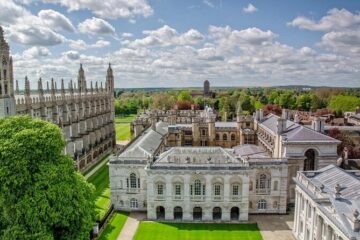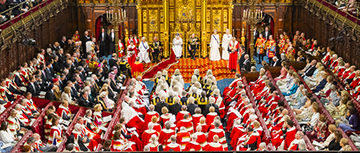The year is 1968. London’s swinging; Prague is springing; the war in Vietnam rages on. Sexual intercourse, if Philip Larkin is to be believed, was invented only five years ago, so its novelty has not yet worn off. The Beatles are about to release their White Album, technology is white-hot, and the great Roy Jenkins occupies Number 11. You, a Baby Boomer in your prime, arrive at university, excited by the vibrancy of its political scene. You see a man at the freshers’ fair shouting that parliament is a hindrance to the ‘revolutionary transformation of society’. Based on that – and, one imagines, the stench – you suspect, quite reasonably, that he is a Marxist of some stripe, perhaps of the Militant persuasion. Your suspicions are strengthened when you notice the denizens of the Labour Club giving him a funny glance. You go up to him, expecting a lecture on Trotsky and dialectical materialism, but when he introduces himself you are surprised. ‘I’m Bernard Greaves’, he says, ‘and I’m the vice-chairman of the Young Liberals’.
In his anti-establishment fervour – his ‘edginess’, if we are to use the instructive modern term – Greaves typified the YL of the sixties. YL was the vanguard of the New Left, intent on taking over the party of Gladstone and Lloyd George from the inside. They loathed NATO and America, and they were closely tied to the CND. They were not ‘liberals’ in any ordinary sense, as they despised the institutions that liberals strive to protect. But they enjoyed the thrill and excitement entailed by their moral crusade against the party elders; they revelled in their ability to antagonise and offend the old-fashioned sensibilities of those scions of Grand Whiggery who continued to dominate the party’s upper echelons. It came as no surprise to those elders when most of the young bloods defected to Labour. One of their number, Peter Hain, later served as minister in the Blair government.
Another, Louis Eaks, later edited the hard-left Tribune magazine. Eaks, the chairman of YL in 1969, infected British political discourse for years to come. Dave Rich, the eminent historian of left antisemitism and the author of The Left’s Jewish Problem, has written that he ‘did more than anyone else to make Palestine a mainstream issue for the British left’. This, of course, is inherently no bad thing; but as with many other young political activists, his blinkered obsession with Palestine belied something more sinister. In 1969 he represented YL at the International Congress of Solidarity with the People of Palestine in Algiers, which denounced Zionism as a ‘racialist, expansionist, and colonialist system that is an integral part and instrument of world imperialism, headed by the United States’. He showed his true colours eventually, as these people often do, when he told a YL meeting in St Albans that ‘Jews see themselves as the master race’.
At around the same time, Peter Hellyer, another YL apparatchik, travelled to Beirut for a meeting with the Palestine Research Centre, an organ of the PLO. When he returned to London, having imbibed PLO ideas, he was determined ‘to counter Zionist propaganda’. The ‘Zionist propaganda’ that the YL leadership set their sights on was Israel’s right to exist. What Hellyer, Hain, and Eaks sought to do was not simply to criticise Israeli policy, an endeavour which would have been entirely legitimate and justifiable. Instead their mission was twofold: first, to elide Israel with South African ‘apartheid’, against which they had, to their credit, campaigned effectively, and second, to denounce Israel as an illegitimate colonial project, a ‘Western intrusion’, as Michael Jefferson put it in a Liberal publication, that had to be rolled back. They did this at a time when most of the left remained strongly sympathetic towards Israel, whose kibbutzim they fetishised as Socialism Done Right. Strange though it is to say that YL was ever relevant, or capable of effecting change, it remains the case that they played a major role by turning the tide against Israel within the British left in the years following the Six Day War, and by changing, and coarsening, the terms of the debate. As a corollary to that, as we today know all too well, the New Left became a hostile environment for Jews.
Then, as now, YL was a cocktail of cruelty and incompetence. Consider, for example, Peter Hain’s official YL press release of 1970 that compared Israel with Nazi Germany: ‘Racial persecution and expansionism are terms instantly associated with Nazi Germany – yet today Israel is seen pursuing the same course’. Obviously this is inflammatory and offensive; it falls squarely within the parameters of the IHRA definition of antisemitism, which Liberals today have done a relatively good job to uphold. The incompetence comes later in the same press release: ‘In Isreal [sic] all people must work to remove Zionists from power, and work with all the peoples of the Middle East to create a non-secular [sic] state of Palestine’. The misspelling of ‘Israel’ is sloppy, though permissible; to supply ‘non-secular’ for ‘secular’, which is apparently what Hain really meant, is a bewildering cock-up, but one befitting of his organisation.
Since I became a member of the Liberal Democrats, in the twilight years of the Coalition, I have very often been tempted to leave the party (in truth I still haven’t moved on from Norman Lamb’s defeat). I have always been dissuaded from doing so by reflecting on the party’s awesome and inspiring history. When it comes to YL, I feel nothing of the sort. Its history is above all an embarrassment, a stain on the party’s reputation: it dovetailed with all the ugliness of the New Left, and it was the birthplace of left antisemitism.
There are some, particularly in Cambridge, who wish to see YL ‘rebuilt’ and aver that it is ‘broken’. In so doing, they suppose that YL was ever good to begin with. Like many populist movements (‘Make America Great Again’ springs to mind) this one is fuelled by false memories of a golden age, now sadly lost to us. This golden age was always a figment of the imagination. The problem is that the flickering light of student politics will always attract the wrong sort: arrogant careerists, pimply and squeaky-voiced, with more ego than life-experience, coked up on whatever happens to be voguish on campus. In student politics, there will always be more cranks and dogmatists than there are serious, sensible people. So YL has always been a steaming pile of shit, and it always will be. Its saving grace is its irrelevance, and if indeed YL is broken, it is best kept that way.



0 Comments